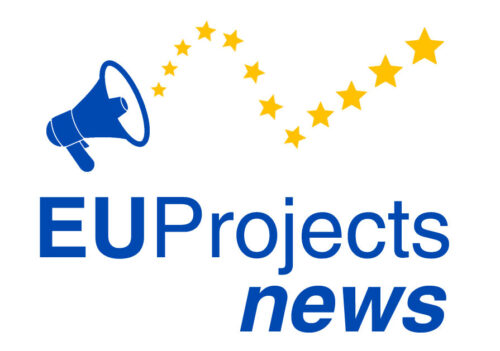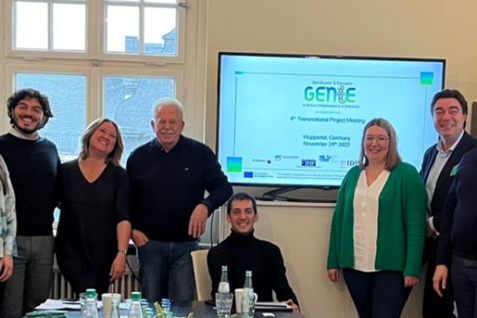
GENIE project is on target
The 4th and final project meeting of the GENIE partner organizations aims to review the quality of all products developed and in particular to address issues of sustainability and the integration …
The partners of IMPACT ACADEMY, an Erasmus+ co-funded project in Higher Education, gathered for a face-to-face transnational project meeting on November 29, 2024, in Brussels, Belgium. The meeting opened with remarks …
The partners of IMPACT ACADEMY, a project in the field of Higher Education co-funded by the Erasmus+ Programme of the European Commission, are proud to announce the successful completion of Work …
The DIGIMUSE ENTER project, co-financed by the European Commission under Erasmus+, has officially launched, marking a major step forward in the digital transformation of small museums across Europe. A two-day Kick-Off …
The UNITY EUROPE project, co-financed by the European Commission under the Erasmus+ KA2 Cooperation Partnership framework, is pleased to announce the publication of the final deliverables of the Work Package 2 (WP2). …
Málaga, Spain – 14 October 2024: The Unity Europe project, a groundbreaking initiative aimed at fostering European cooperation and social cohesion, held a face-to-face meeting with all its project partners on …


The 4th and final project meeting of the GENIE partner organizations aims to review the quality of all products developed and in particular to address issues of sustainability and the integration …
The 4th and final project meeting of the GENIE partner organizations aims to review the quality of all products developed and in particular to address issues of sustainability and the integration of the results into the future work of all partners.
Based on the very successful validation process, which involved more stakeholders than planned and at the same time with excellent feedback from those involved in the process, the products (training units and the GENIE game) were finalized.
The work done so far to disseminate the results has exceeded all previous expectations. More than 400,000 interested parties and organizations have already been reached online; more than 110,000 have been informed about GENIE through analogue media. 3,000 people have already used the GENIE material and the game has already been downloaded almost 300 times onto their own computers. Finally, the homepage has been visited more than 80,000 times.
The consortium is optimistic for further and intensive use by interested stakeholders throughout Europe. The 4th meeting took place from November 23-24, 2023 at d-ialogo in Wuppertal.
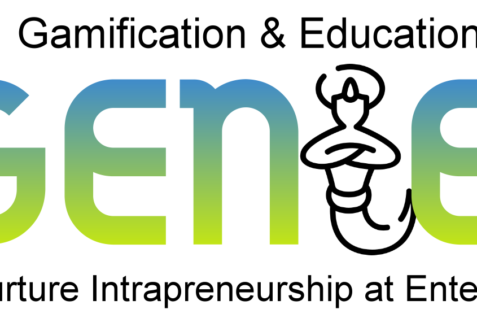
After finishing the development of the training and the GENIE board and online game all project partners are now starting to deliver the training and game in the validation activities to …
After finishing the development of the training and the GENIE board and online game all project partners are now starting to deliver the training and game in the validation activities to involve at least 150 beneficiaries until October 2023. The target group of the test & validation are microentrepreneurs, leaders of micro and small enterprises as well as their employees.
The aim of the test & validation phase within the GENIE project is to ensure the quality, reliability, and correctness of the training and the game. It is a crucial step in the development lifecycle that involves verifying that the product meets the specified requirements and performs as expected.
The primary goals of the testing and validation include:
Ultimately, the aim of testing and validation is to deliver a reliable, high-quality product or system that meets the needs and expectations of its users while minimizing risks and ensuring compliance with relevant standards. This is the real-operational environment testing of the results aimed at collecting feedback from users on content, delivery means, depth and relevance of the modules, user friendliness of the boardgame, functionalities of the OER Platform, etc. Users who are interested in the training and the online game can access the platform without login requirements: https://genieproject.eu/training.php?lang=EN. At completion of the course, they can use a feedback form to provide information on the user friendliness of the training course. Upon completing the training course and the quiz at the end they can also prompt the OER Platform to develop an attendance certificate.
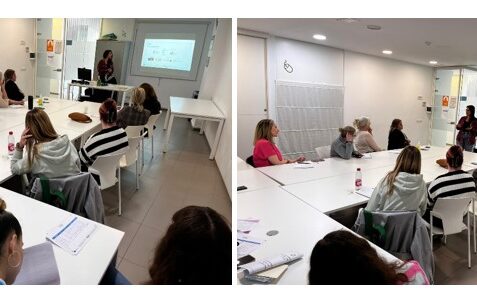
Within the framework of the GENIE project (Gamification & Education to Nurture Intrapreneurship at Enterprise), co-funded by the Erasmus+ Commission, Internet Web Solutions, together with its associated partner Arrabal-Aid, hosted the …
Within the framework of the GENIE project (Gamification & Education to Nurture Intrapreneurship at Enterprise), co-funded by the Erasmus+ Commission, Internet Web Solutions, together with its associated partner Arrabal-Aid, hosted the Workshop on useful resources for enhancing intrapreneurship on May 3, 2023. This session served to explore how to promote intrapreneurship in European companies through training modules, case studies, and digital tools.
The associated partner Arrabal is highly regarded in Málaga for its training and employability policies, to the extent that many of its locations are provided by the Málaga City Council.
The project, along with its objectives, implementation methodology, and the collaborative partnership involved, was thoroughly presented. Specifically, the four Intellectual Outputs (IO) and the resources already available on the multilingual OER platform at https://genieproject.eu/ were presented:
IO1: OER platform for intrapreneurs and SMEs, serving as a repository for all project outcomes.
IO2: Final report of the innovative GENIE model for intrapreneurship in micro, small, and medium enterprises (SMEs) titled “Intrapreneurship in Microenterprise: The GENIE Model & Innovative Pedagogies.”
IO3: GENIE Innovative Training and Gamification:
GENIE Training program to foster intrapreneurship in companies, comprising 11 training courses and 11 case studies in 6 languages (English, Croatian, Spanish, Italian, German and Swedish).
GENIE Game, which is a game designed for employees and managers of SMEs to showcase the value of entrepreneurship in an enjoyable manner, enhancing innovation and competitiveness for both companies and their employees.
IO4: GENIE Adoption Suite (currently under development), which will provide guidelines for users in micro-enterprises and the VET system for adopting, adapting, and implementing GENIE training and the board game.
The Multiplier event brought together 20 participants representing the target groups, who were impressed by the practical and innovative content of the project. Arrabal technicians, who work in local business and training ecosystems, were also present. The functionality of the platform was presented through practical demonstrations, as well as the training available, providing users with a comprehensive knowledge of the content and tools developed for the GENIE project. Digital materials and the online board game were showcased, and feedback and impressions were collected during a final brainstorming session.
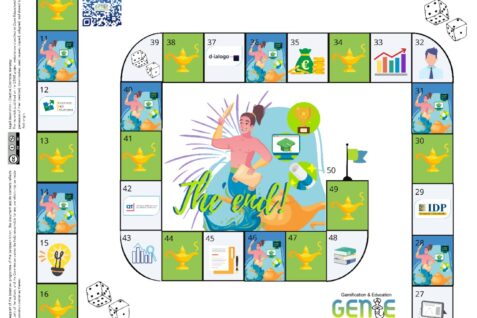
On January 23rd, 2023, IHF asbl hosted the 3rd Transnational Project Meeting (TPM) of the GENIE project in Brussels (Belgium). GENIE, short for Gamification & Education to Nurture Intrapreneurship at Enterprise, …
On January 23rd, 2023, IHF asbl hosted the 3rd Transnational Project Meeting (TPM) of the GENIE project in Brussels (Belgium). GENIE, short for Gamification & Education to Nurture Intrapreneurship at Enterprise, is an EU co-funded Erasmus+ that brings together seven organisations from six countries (Belgium, Croatia, Germany, Italy, Spain, Sweden). This project is driven by the integration of gamification and intrapreneurship to develop advanced VET solutions supporting the competitiveness of micro, small and medium enterprises (MSMEs). Its primary objective is to contribute to the growth, innovation, and competitiveness of these enterprises through the creation of innovative training tools, solutions, and content.
The 3rd TPM provided an invaluable opportunity to review the project’s progress, particularly the development of training modules and the boardgame, and to outline the upcoming steps for the project’s final implementation phase.
An important milestone achieved by the consortium is the introduction of an innovative training toolbox, which includes comprehensive training modules and a captivating boardgame designed to empower intrapreneurship within enterprises, with a particular focus on MSMEs.
Available in six languages (DE, EN, ES, HR, IT, SE), the toolbox can be accessed through the following links:
The training modules consist of courses and related case studies, addressing various aspects, including:
Inspired by gamification principles, the GENIE partnership has developed an engaging game as a complementary component to the training modules, providing an interactive tool to test and reinforce acquired knowledge.
The GENIE game, showed below, aims to showcase the value of intrapreneurship in an entertaining manner, highlighting how it enhances innovation and competitiveness within companies and among their employees. Through active and responsible participation, employees can improve processes and collectively achieve defined goals.
To explore the GENIE project’s training modules, case studies, and experience the elements of the GENIE game, along with its rules, please visit the official project website: www.genieproject.eu

El resultado de las actividades de investigación y análisis de los socios del proyecto GENIE es su innovador modelo de intraemprendimiento, el cual ya está disponible en la plataforma GENIE (https://genieproject.eu/assessment.php). …
El resultado de las actividades de investigación y análisis de los socios del proyecto GENIE es su innovador modelo de intraemprendimiento, el cual ya está disponible en la plataforma GENIE (https://genieproject.eu/assessment.php). La plataforma también ofrece información sobre los objetivos, actividades y resultados del proyecto. El innovador modelo de intraemprendimiento de GENIE para las mipymes resume los mecanismos para que las mipymes implementen el intraemprendimiento involucrando al personal y la gerencia para desarrollar nuevas ideas, negocios y procesos de gestión, productos y servicios. El objetivo del modelo es identificar diferentes conceptos de intraemprendimiento y dar respuestas a cómo puede establecerse un modelo de intraemprendimiento en las empresas.
El modelo ha sido preparado por el consorcio (siete socios de seis países: Alemania, Italia, Suecia, Bélgica, Croacia y España) y ofrece un resumen de los mecanismos para implementar intraemprendimiento en las mipymes al involucrar al personal y la gerencia para desarrollar nuevas ideas, negocios, procesos de gestión, productos y servicios – todo para apoyar la innovación, la competitividad y el crecimiento en las mipymes.
El modelo se basa en los siguientes elementos:
Conceptos de intraemprendimiento
Contexto europeo
Intraemprendimiento en las publicaciones científicas
Apoyos y obstáculos al intraemprendimiento
Modelos de gestion del intraemprendimiento
Marco de políticas del intraemprendimiento
Casos prácticos/buenas practices/ lecciones aprendidas de las grandes corporaciones
La dimension digital del intraemprendimiento
De acuerdo a este modelo, el intraemprendimiento se ve como un fenómeno emergente que encaja con este cambio en el paradigma y los valores que muchas compañías han empezado a desarrollar desde el principio de la última década. El intraemprendimiento se nutre de los siguientes desencadenantes ambientales y culturales:
Favorecer el pensamiento proactivo, el sentido de la iniciativa y la coparticipación en la toma de decisiones.
Apoyar el desarrollo de las habilidades transfuncionales de los empleados, las cuales son cruciales para fortalecer su nuevo estatus – y actitudes relacionadas
Contribuir a la urgente creación de un entorno de negocios que dé la oportunidad para crear relaciones de negocios productivas y efectivas
Permitir que se expresen opiniones discordantes – siempre que se basen en asunciones críticas, racionales y motivadas.
Establecer sistemas de feedback que permeen las funciones y las jerarquías para favorecer un compromiso común y proposición de valor
